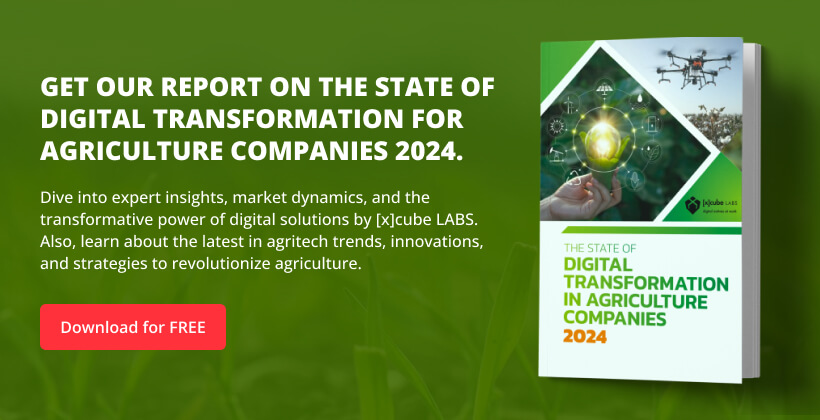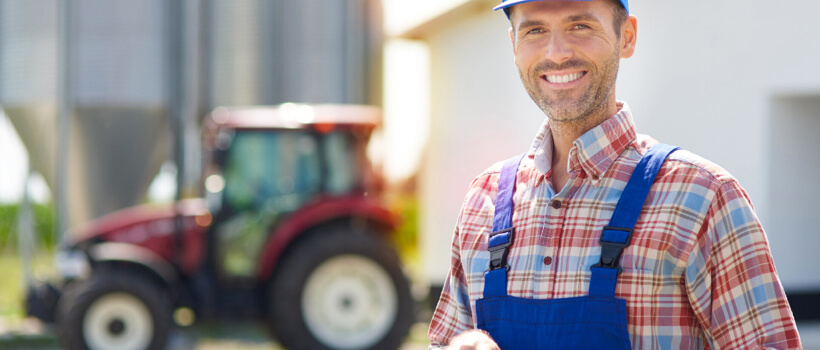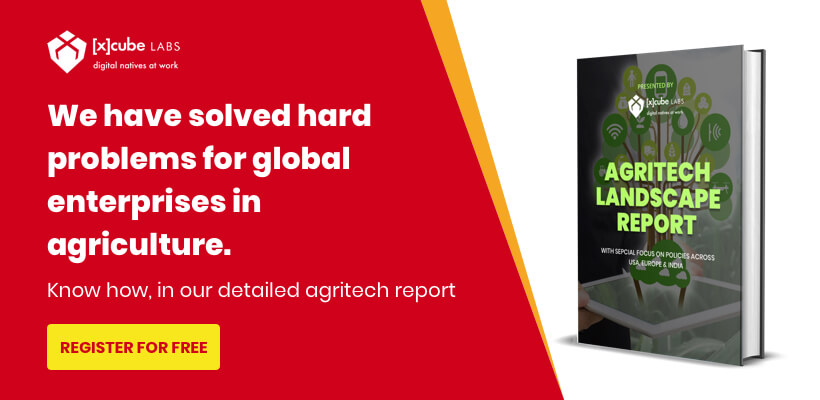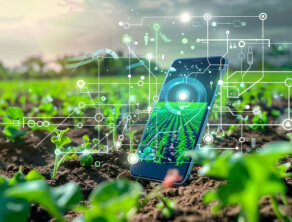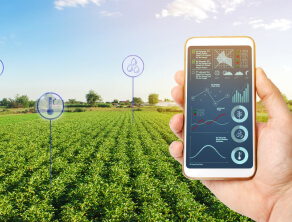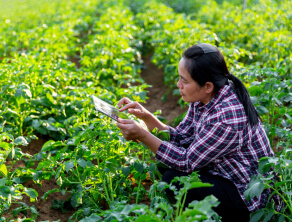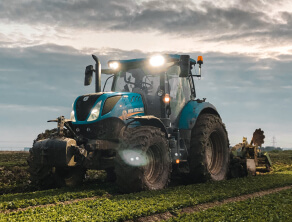Overcoming Supply Chain Challenges in Agriculture with Digital Technologies
Table of Contents
An estimated 30% of global food production is lost along the supply chain. Food losses and waste amount to nearly US$680 billion in industrialized countries and US$310 billion in developing countries. All of these losses occur at a time when the world’s population is expected to reach 9.1 billion by 2050, which means we’d require increasing our food production by up to 70%!
However, with the increasing population, food supply chains are also becoming increasingly complex, presenting challenges in reducing food wastage and delivering safe, nutritious food of high-grade quality. Optimizing food processing procedures, streamlining supply chains, and linking farmers directly to the market, among other things, can achieve this.
Supply Chain in Agriculture
A typical agricultural supply chain includes farmers, suppliers, processors, distributors, consumers, and stakeholders. Due to the number of actors involved in the supply chain, they become more complex and riskier. The impact of external factors on agricultural production, such as weather, pests, and diseases that are hard to predict and control, makes it even more challenging to keep up with the set targets. The lack of traceability in the agricultural supply chain, slower financial transactions, intensive manual work, and many other challenges raise more concern about the efficacy of the agriculture supply chain. Additionally, counterfeits may appear at each stage of the supply chain and negatively impact all business stakeholders, governments, and consumers.
Leveraging Digital to build a more resilient supply chain
All these challenges can be converted into opportunities by using digital technologies to enhance agricultural productivity and efficiency of the field staff by digitizing the various field operations and constantly improving farming practices based on the ground-truth intelligence that provides actionable insights.
Let us see how the technologies are helping in managing the supply chain
Reducing the post-harvest losses with AI
About 30 percent of the food produced globally is estimated to go to waste through post-harvest losses that occur along the value chain.
AI applications are primarily used in agriculture to predict the environmental impact on crop yields, such as weather changes, helping farmers make correct harvesting decisions. These applications help develop patterns that can be used to analyze the data and turn it into usable information for the farmers. In addition, agri-tech firms are developing predictive systems that can help predict storage conditions and suggest preventive action towards the rotting of stored food products. In some instances where labor is challenging, robots and machines that can help harvest crops such as tea and strawberries have been developed to minimize post-harvest losses.
BOOK A CONSULTATION FOR FREE!
Avail a FREE consultation with our digital experts on scaling your agriculture business with digital solutions.
Potentially eliminate fraud and counterfeiting in the supply chain
With the blockchain-based supply chain, agribusiness can show how a product from the farm to the shelf is handled with the strictest adherence to organic principles. Consumers can scan a dynamic QR code to verify the organic nature of their products.
Furthermore, with a blockchain-enabled tracking system, there are far fewer chances for fraudulent and counterfeit goods to enter legitimate retail stores, where unsuspecting consumers can purchase them and suffer the potential consequences.
According to the United Nations, counterfeit food costs the global economy nearly $40 billion annually.
This makes it even easier to confidently brand and sell authentic, high-quality goods that stand up to premium labels like organic and locally grown. We have helped Syngenta with Barcode solutions to manage counterfeit products and an information-sharing app for crop growers.
Food Safety
The blockchain can provide an efficient and reliable solution to the need for product traceability and supply chain transparency. By recording product information at every stage of the agricultural supply chain, a blockchain helps remove redundant processes, ensure quality control, and monitor storage conditions. Agricultural companies already monitor crops with intelligent IoT devices, and the application of distributed ledger technology will reinforce sensing technology by recording and verifying all data.
Traceability
Traceability enables companies to track the environmental, economic, health, and social consequences of agricultural production processes, making it possible to calculate the “true cost of food.” It can al.” help meet the increasing consumer demand for transparency and improve producer revenue, market access, and opportunities for access to capital.
Big brands catering to consumers worldwide need to keep a sharp eye on the supply chain to ensure they provide only the choicest products. Farm-to-shelf traceability is essential in establishing a food ingredient’s origin. End consumers perceive it as a benchmark of quality and food safety. Procurement organizations, indispensable players in the Agri supply chain, can leverage state-of-the-art digital tools to track all the processes involved in the cultivation of agri-commodity and utilize this intelligence to strengthen the supply chain further and earn the trust and loyalty of the end-consumers.
Agriculture finances
Blockchain can bring transparency to agricultural financial transactions, credit history, and financial agreements for smallholders who want to invest in farming. Shared access and irreversible agreements will allow smaller farmers to pay for raw materials and machinery partially or after delivery and guarantee fair market pricing.
Conclusion
Similar to digital healthcare, a clear long-term vision for digital agriculture has also become crucial, as farming players will face an increasingly challenging environment due to increasing food demand and fewer resources. Distressful situations such as the ongoing pandemic have also highlighted the need for a more efficient and resilient supply chain and why it has become more critical. Digital technologies, however, offer a robust set of new tools that will enable stakeholders to build the new-age supply chain, which can tackle all the current challenges and open a new value for those seeking to innovate beyond just needs.
![Blog-[x]cube LABS](https://d6fiz9tmzg8gn.cloudfront.net/wp-content/uploads/2016/06/blog_banner.jpg)
